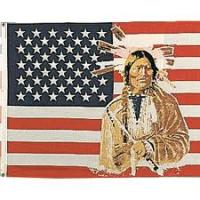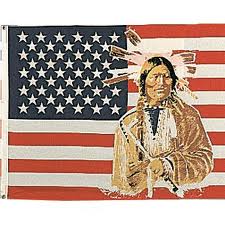 Casino leaders of Indian tribes across the US have informed regulators and companies on Monday that they are not willing to support new online gambling laws unless it’s made clear how exactly it will affect them.
Casino leaders of Indian tribes across the US have informed regulators and companies on Monday that they are not willing to support new online gambling laws unless it’s made clear how exactly it will affect them.
It has been reported that Chairwoman, Leslie Lohse, of the California Tribal Business Alliance said at the iGaming North America conference that online gambling has cultural and economic implications that shouldn’t be ignored because others are in a hurry to start taking bets.
As reported by Fox News, Lohse said: “What’s going to satisfy us? That we really sit down and hammer out the nuts and bolts of this. Really look at the impacts and not rush to the gold.”
She added that Tribal sovereignty, local economic implications as well as a plethora of other issues need to be tackled before tribes will be ready to support Internet gambling laws across any part of the country. This is thought to be because the tribes and others, including casino companies, equipment manufacturers and state lotteries, don’t want to be left out if Americans eventually are able to wager on poker at home on computers or on mobile devices.
Approximately 239 Indian tribes operated 448 gambling businesses nationwide during 2010.
Sheila Morago, executive director of the Oklahoma Indian Gaming Association, said tribes are not in the best position since the recession and don’t want to further threaten the businesses they’ve worked to build. She said opinions about Internet gambling proposals are widespread and varied because current arrangements that allow for Indian casinos are complex.
She said: “When you take one federal bill and sort of overlay it over 29 state compacts, you’re kind of wondering how is this going to work. We can all agree that nobody wants to open up those state compacts.”
Speaking at the conference, Chief financial officer of Caesars Entertainment Corp, Jonathan Halkyard, urged federal legislation as soon as possible, while a lawyer who represents tribes throughout the West, Stephen Hart, said tribes in California won’t be eager to give up elements of their sovereignty, or exclusive rights to offer casino games. “One would have to anticipate disagreements,” he added.
In 2012, California accounted for $6.8 billion in gambling revenue, that’s more than one quarter of revenues from American Indian casinos in the same year. Will the tribes ever get the reassurance of legal online gambling?
